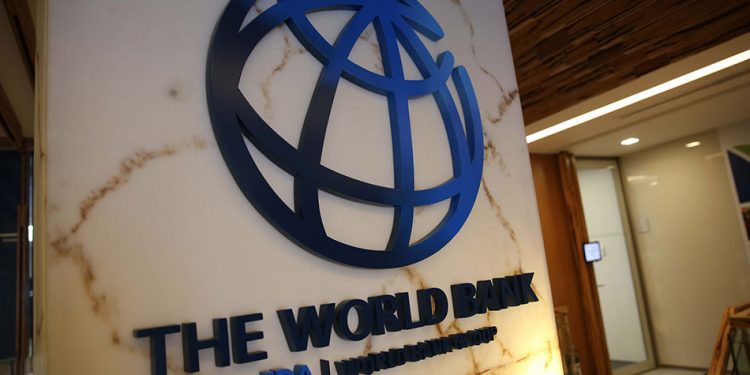The World Bank cut its forecast for global economic expansion this year on Russia’s invasion of Ukraine and is planning to mobilize a funding package bigger than the Covid-19 response for nations to deal with various resulting and ongoing crises.
The Washington-based institution has lowered its estimate for global growth in 2022 to 3.2% from a January prediction of 4.1%, President David Malpass told reporters on a call on Monday. The decline was spurred by a cut in the outlook for Europe and central Asia, which include Russia and Ukraine, he said. The global forecast for this year compares with 5.7% expansion in 2021, he said.
The World Bank chief said he expects to discuss a new 15-month crisis-response package of about $170 billion to cover April 2022 through June of next year with the bank’s board in coming weeks, with about $50 billion of this amount to be deployed in the next three months.
“This is a continued, massive crisis response given the continuation of the crisis,” he said, adding that the new initiative will exceed the $157 billion mobilized for the initial phase of the Covid-19 pandemic.
Malpass’s comments and plans come ahead of the International Monetary Fund and World Bank spring meetings taking place this week in Washington, where food security, inflation, debt and the shock of Russia’s invasion of Ukraine are set to feature.
The World Bank last month announced a $3 billion funding package for Ukraine that it expects to be approved and deployed over the coming months.
Malpass said he expects the debt crisis for low- and middle-income nations to worsen in 2022.
There has been slow progress on a plan by the biggest economies to help debt-ridden developing nations restructure what they owe creditors and a $35 billion bill is coming due this year.
“Countries are under severe financial stress — 60% of low-income countries are already in debt distress or at high risk of it,” Malpass said, repeating the bank’s call for improvements to the Group of 20 rich nations’ so-called Common Framework to reorganize the debt of countries in danger of default.







